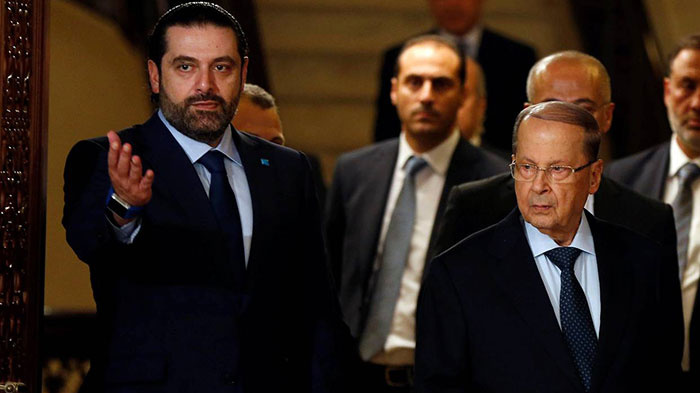Both Ends of Iran’s Political Spectrum Agree on Michel Aoun Presidency

The Lebanese parliament finally ended the country’s long-vacant presidency on Monday, throwing their support behind Michel Aoun, a strong Hezbollah ally. Before the majority vote, the 81-year-old Christian leader had won the support of two of his greatest rivals: Samir Geagea, leader of the Christian Lebanese Forces, and ex-prime minister, Saad Hariri. Among other things, the election is seen as Iran’s win in the face of the Saudi Arabia.
Iran’s official response was best reflected in Foreign Minister Javad Zarif's note of congratulation on his Twitter account, that said stability and progress was assured as Lebanese themselves decided for their country. The chairman of the National Security and Foreign Policy Committee of the Majlis Alaeddin Boroujerdi also called the election of Aoun a great achievement for the Lebanese nation, tribes and political groups. “Aoun’s speech on liberating more of the occupied Lebanese lands shows he has a clear conception of the resistance, which provides a unique opportunity for the resistance front,” he told Iranian Consultative Assembly News Agency, ICANA.
The news provided a rare case wherein Iranian media, Principlist and Reformist, agreed. The bellwether of Principlist media outlets, Kayhan daily, called Michel Aoun’s election to presidency as yet another victory in the glorious history of Islamic Resistance.
Principlist daily Javan also published an article by Middle East expert Ahmad Kazemzadeh, which emphasizes the significance of the state of Aleppo in the breakthrough. Besides Hariri’s compromise, Kazemzadeh sees what he calls the failure of the regime change policy and the frustration of those behind it as an important factor. “The so-called March 14 Alliance, including Saad Hariri, imagined that with the advancement of regime change in Syria, they would have more maneuvering space in Lebanon to help rise their own favorite to presidency. Thus, they were waiting for the Syrian developments to crystallize and now it seems they have lost hope that the developments could once change in their benefit,” he said.
A more hardliner Principlist newspaper, Vatan Emrooz openly calls Michel Aoun’s election as a “Saudi defeat”. The daily implies that Aoun’s stance regarding Hezbollah’s involvement in Syria and perturbed responses from the Zionist regime of Israel are signs of Iran victory.
Pro-reform outlets had similar responses, too. Etemad daily draws on a quote from the New York Times to say the scales are tipped down in the interest of Iran: “The resolution of Lebanon’s painfully drawn-out leadership battle marks a small victory for Iran on the score card of its regional struggle against Saudi Arabia, which had indirectly pushed for a different presidential candidate, Suleiman Frangieh”. Elsewhere on the pages of Etemad, Masoud Edrisi, Iran’s former ambassador to Beirut, hailed Aoun’s presidency as the realization of democracy. Some of the main issues that should be addressed under Aoun’s presidency, Edrisi writes, include the status quo, the suffering economy, Resistance, fight against growing terrorist groups, and sorting out foreign relations with countries such as France, the US, Iran, Saudi Arabia and Syria. “Michel Aoun is a powerful man and could establish balance between Iran and Saudi Arabia in Lebanon’s domestic scene,” he added.
In an op-ed published in pro-reform Shargh daily, Hadi Khosrowshahi, former head of Iran’s representative office in Egypt, also expressed hope that the consensus formed among political parties in Lebanon could serve as a precedent for them “to unite over their accords and excuse each other over their differences”.
Iran’s former ambassador to Jordan Nosratollah Tajik says the shift in Saad Hariri’s position should not be interpreted just as a decline in Saudi influence. Tajik argued in a separate article published in Shargh that the shift was more due to domestic economic and political developments in the Saudi Arabia, hence Hariri’s financial problems, which have even affected his personal ties with individuals within the Saudi house, including Mohammed bin Nayef.
Praising Hariri’s choice of compromise, Tajik urges Iran to adopt an all-inclusive approach toward Lebanese political parties. “Our soft power will burgeon in working with all the parties and tribes in Lebanon,” he concludes.

